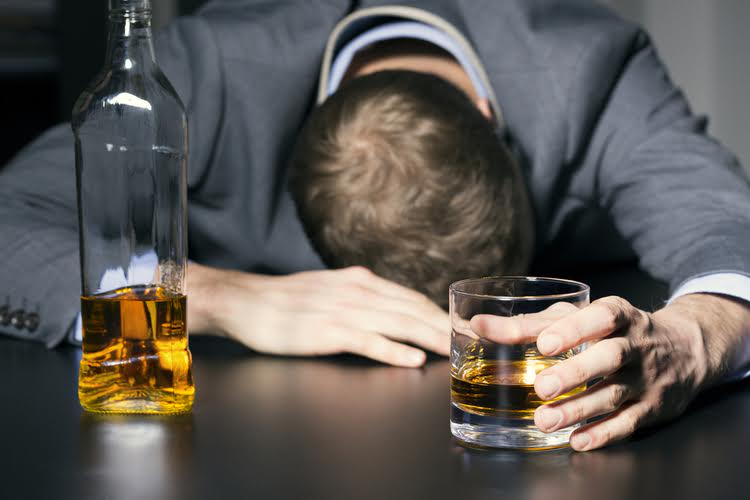Treatment and Recovery National Institute on Drug Abuse NIDA
09/08/2024 02:17
Results are mixed for those using heroin, nicotine, or cocaine or those using multiple substances. Regardless of the reason, substance use becomes less of a choice over time. Long-term exposure leads to changes in brain function, and the person is no longer in control. SUD affects the parts of the brain involved in reward and motivation, learning and memory, and control over behavior. For outpatient treatment to work well for you, it’s important to go to your sessions regularly and also get other support, such as Alcoholics Anonymous or Narcotics Anonymous meetings. Having support from friends or family, good transportation, and a stable place to live also are important.
Drug addiction (substance use disorder)
Aftercare provides the framework you need to handle the daily tests of early sobriety. Think of it as a bridge, connecting the highly structured world of a rehab facility to the freedom of everyday life. This ongoing support significantly lowers the risk of relapse and helps cement the healthy habits you worked so hard to build. It’s no surprise that the need for these different programs is growing. The global drug addiction treatment market is on track to hit USD 31.20 billion by 2032.
Connect with NIMH
It is important to give any treatment plan a chance to work before deciding whether it is right for you. The chronic nature of addiction means that for some people relapse, or a return to drug use after an attempt to stop, can be part of the process, but newer treatments are designed to help with relapse prevention. Relapse rates for drug use are similar to rates for other chronic medical illnesses. If people stop following their medical treatment plan, they are likely to relapse. A great place to start when seeking addiction support is with a primary healthcare professional. They’ll be able to recommend any local options for recovery centers or support groups.
Medications
Following this, they may live in supervised housing while they readjust to managing finances and finding employment. A person might take medication on a continuous basis when recovering from a substance-related disorder and its related complications. These may help the recovering individual meet others with the same addictive disorder which often boosts motivation and reduces feelings of isolation. They can also serve as a useful source of education, community, and information. This involves clearing a substance from the body and limiting withdrawal reactions. Medications for opioid use disorder are safe, effective, and save lives.
Fortunately, there are treatment options such as detox, inpatient residential programs, medication assisted therapy, outpatient programs, and aftercare programs that can help you overcome your addiction. A medical doctor, psychiatrist, or licensed addiction counselor will sit down with you to understand the specifics of the substance use and uncover any co-occurring mental health conditions. This evaluation is what determines the right level of care, making sure your treatment plan is built on a real understanding of your needs from day one. By stepping away from everything, a person can put their full energy into recovery without distractions.
Some people deny or are unaware that they have a problem with addiction, and sometimes a person’s substance dependency and abuse remains hidden from loved ones. Mutual help groups are peer-led recovery organizations that provide fellowship and support to people with substance use disorders by connecting them to peers who are in recovery. These include 12-step programs such as Alcoholics Anonymous and Narcotics Anonymous and others such as SMART Recovery, Women in Sobriety, and Life Ring.
In trying to help them overcome addictive behavior, they may at times end up enabling the Substance abuse child instead. In programs such as Alcoholics Anonymous, these parents can learn how to keep from enabling their child while still offering love. Often a counselor or social worker can provide assistance to parents in this area and help them find the best way to bring up the subject of substance abuse and addiction with their child. Treatment options for addiction depend on several factors, including the type of addictive disorder, the length and severity of use, and its effects on the individual.
Support groups and self-care strategies

Still, some research indicates that it may improve symptoms of PTSD to a greater degree than those of SUD. Plus, it may be most effective when combined with other treatment options. The fundamental principle of the program is the belief that combining treatment for co-occurring PTSD and SUDs is more effective and yields better results than treating each disorder separately. Seeking Safety is a therapeutic approach designed for people with both an SUD and post-traumatic stress disorder (PTSD). CM is among the most empirically supported strategies for helping clients stay drug-free.
- Self-help support groups can decrease the sense of shame and isolation that can lead to relapse.
- It involves a form of talk or behavioral therapy and sometimes medication.
- Counselors may select from a menu of services that meet the specific medical, mental, social, occupational, family, and legal needs of their patients to help in their recovery.
- Regular participation in these groups can significantly enhance recovery prospects by creating lasting connections and reinforcing sobriety goals.
- When people enter treatment, addiction has often caused serious consequences in their lives, possibly disrupting their health and how they function in their family lives, at work, and in the community.
Members of NA motivate each other to stay committed to sobriety and avoid falling back into patterns of abuse. Meetings typically involve individuals sharing their stories of addiction and recovery. Within holistic therapy, the focus is on the individual’s https://in-linerenewalsolutions.com/alcoholism-life-exectancy-how-long-do-alcoholics-2/ overall well-being, which includes physical, emotional, and spiritual needs. Holistic therapy is a common mainstay in many treatment programs and has many benefits. Holistic therapies may consist of yoga, acupuncture, art therapy, and guided meditation.

Lifestyle Quizzes
Residential therapy separates you from the place and things what is the best treatment for substance abuse for older adults that led you to use drugs. It means the facility volunteered for a tough evaluation and proved it meets high national standards for safety and quality of care. Choosing an accredited center gives you the peace of mind that you’re looking at a reputable program dedicated to evidence-based treatment.










